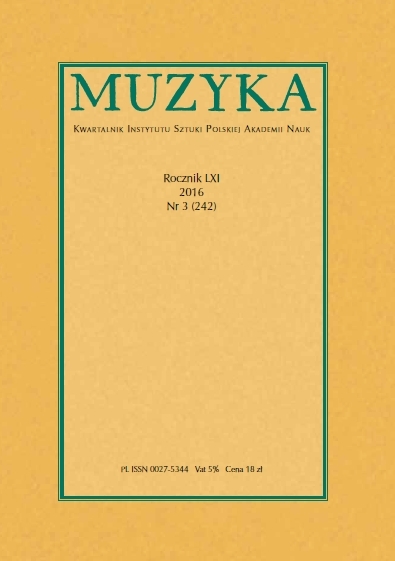Znaczenie ładu liczbowego oraz muzyka jako dar Boży w świetle traktatów Andreasa Werckmeistra
Music as a Gift of God and the Significance of the Harmony of Numbers in the Treatises of Andreas Werckmeister
Author(s): Katarzyna KorpantySubject(s): Music
Published by: Instytut Sztuki Polskiej Akademii Nauk
Keywords: Andreas Werckmeister; music theory; seventeenth-century music;
Summary/Abstract: The organist, composer and music theorist Andreas Werckmeister (1645–1706) is an important figure in the history of German music of the seventeenth and early eighteenth centuries. His name was well-known throughout Protestant Germany, even though he never travelled far and spent his entire life in the Harz region. Werckmeister was regarded as a great authority in the field of organ building. He wrote eleven treatises, one of which is lost. In his writings, Werckmeister discussed issues related to pipe organ manufacturing and musical temperament, the teaching of composition and basso continuo, and also musical-philosophical matters. His works were held in very high regard, including by the composer Dietrich Buxtehude and such theorists as W. C. Printz, J. G. Ahle, J. G. Walther, J. Mattheson and J. Adlung. The views formulated by Werckmeister were characteristic of the German music theory of the seventeenth century. Two of his conclusions are very significant. First, music is a mathematical field of knowledge based on numerical proportions. Throughout the Baroque era, German thinkers perpetuated a worldview derived from Pythagoras and Plato, according to which all reality was governed by mathematical principles. Werckmeister placed particular emphasis on the importance of the harmony of numbers in the structure of the universe, including music.
Journal: Muzyka
- Issue Year: 61/2016
- Issue No: 3
- Page Range: 97-114
- Page Count: 18
- Language: Polish
- Content File-PDF

